Amsterdam Dance Event, what a blast!
As October wrapped up, the electronic music world once again converged on Amsterdam for the highly anticipated ADE .
In its 29th edition this year, ADE reaffirmed its status as the world’s largest festival and business conference for the dance and electronic music industry. Following the International Music Summit held in April, Amsterdam Dance Event stood as the defining event on the calendar, where professionals, artists, and enthusiasts came together to connect, collaborate, and celebrate.
Held from October 16 to 20, ADE transformed Amsterdam into a bustling hub of sound, innovation, and creativity. With over 1,000 events across nearly 200 venues, more than 3,000 artists performed to audiences from around the globe. Participants from 146 countries gathered for this immersive experience, which brought together the best of electronic music along with groundbreaking industry insights.
Check out our Instagram highlights!
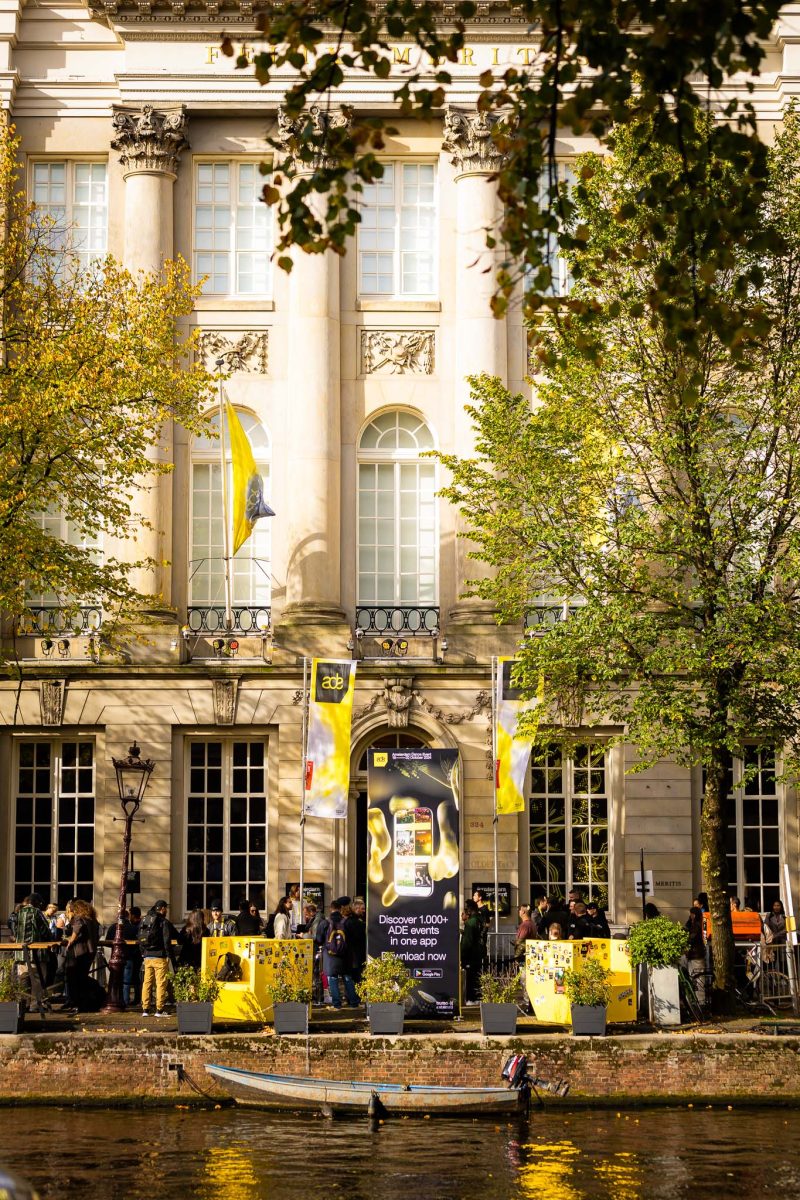
ADE 2024 General Highlights
-
The Festival’s Milestone Moments: This year’s ADE was rich with standout moments, from iconic performances to groundbreaking panels and workshops. High-profile speakers, including industry legends and rising stars, offered invaluable insights into the future of music production, distribution, and live performance. Attendees also enjoyed artist showcases that highlighted the diversity of genres and styles shaping the electronic music scene today.
- Innovation and Technology at the Forefront: ADE 2024 went beyond music with a focus on technological advancements and industry innovation. Sessions dedicated to AI in music, immersive sound design, and sustainable event practices illustrated the forward-thinking spirit that ADE is known for. Startups and tech companies displayed their latest solutions, while artists and producers explored new tools that could shape the sound of tomorrow.
- A Platform for Emerging Talent: Amsterdam Dance Event continued its commitment to fostering emerging talent, offering young artists invaluable exposure and networking opportunities. Specialized showcases and dedicated panels provided a space for up-and-coming talent to connect with industry veterans, gaining insights and making contacts that could shape their careers. This platform has long been a crucial feature of ADE, solidifying its role in nurturing the future of electronic music.
- Impact on the Global Music Landscape: ADE’s influence extended well beyond Amsterdam, with lasting effects on the global electronic music scene. By creating a space for collaboration and innovation, ADE catalyzed projects that will resonate worldwide. Many attendees left with new partnerships and creative projects, while industry insights gained at ADE will continue to shape strategies and trends within the industry.
- Looking Forward: The Future of ADE: As the 29th edition concludes, anticipation is already building for next year’s landmark 30th anniversary. Many expect even greater expansions in the realms of digital integration, sustainability, and diverse talent showcases. Amsterdam Dance Event’s continued evolution promises to keep it at the forefront of electronic music, fostering a dynamic space where the future of the industry unfolds.
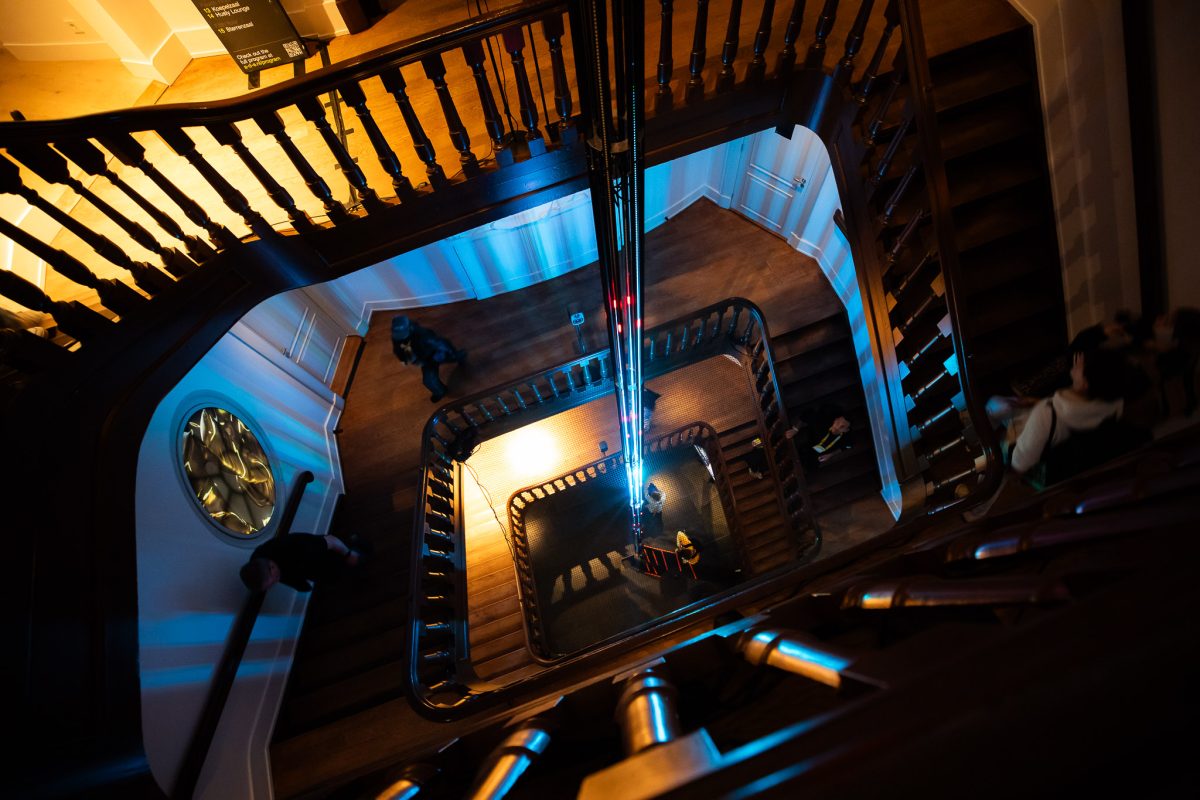
Navigating the Immensity of ADE
The scale of the Amsterdam Dance Event is truly unparalleled. It’s practically impossible for a single person to experience everything the festival has to offer. Each year, ADE presents a unique challenge: choosing where to be and what to attend. To make the most of this five-day whirlwind, we carefully curated our schedule, selecting panels and events that promised the most impact, insight, and inspiration.
Even with a well-planned approach, there’s always more than one team can cover. This year was no exception; there were inevitably sessions and performances we couldn’t attend. Yet, despite the limitations, the 2024 edition left us with an abundance of ideas, connections, and unforgettable moments. Reflecting on this year’s experiences, the wealth of inspiration and insights confirms that ADE remains a goldmine for anyone invested in the future of electronic music.
Unleashing Startup Potential & Opportunities in Africa
Speakers: Odunayo Eweniyi (PiggyVest), Bianca Ambrosini (Best Nights VC), Isaac ‘Ansah Live’ Asante Nyarko (Vibrate Space), Peng Chen (HustleSasa)
The rise of African music has been nothing short of remarkable in recent years, with many major music companies establishing a strong presence in these markets. African music is now a mainstay on global charts, yet there remains limited discussion on the ecosystem of innovative companies and the opportunities this growth presents. This panel aimed to spotlight the entrepreneurs and start-ups driving innovation in music and technology across this dynamic landscape.
Africa’s tech ecosystem is undergoing steady, significant growth, especially in the fintech sector, with advancements in both technologies and business models. The potential for further expansion is driven by the region’s demographics—a population of over 1 billion people across 56 countries with an average age of just 19. However, managing operations across such a vast and complex region remains challenging, especially due to logistical costs. Once these hurdles are addressed, there’s little doubt that Africa can compete on the global stage.
Genres like Amapiano initially paved the way for African music’s global success, even before Afrobeat and Afro house took hold. There is ample room for music to evolve, especially in regions outside of West Africa, which may reach comparable levels of influence and growth even more rapidly.
Strategic collaborations, which began as an early entry strategy, could now serve as powerful marketing drivers. Still, investments need to be well-targeted and protected to support long-term growth. Nigeria, for example, is often seen as a model market, with 93% of music consumption occurring through streaming. Digital streaming platforms (DSPs) like Boomplay, Mdundo, and Audiomack, though not exclusively local, manage to compete effectively with global giants. An African-made DSP could potentially have a unique impact, likely adopting an artist-centered model that better aligns with regional needs. However, infrastructure improvements—especially internet access—remain crucial to this evolution.
With increased local investment, the benefits have been clear, especially in terms of artist compensation, although certain inequities persist and occasionally conflict with broader cultural progress. On the live music front, many artists could potentially tour extensively within Africa, but the infrastructure lacks the robustness required to support major, large-scale events.
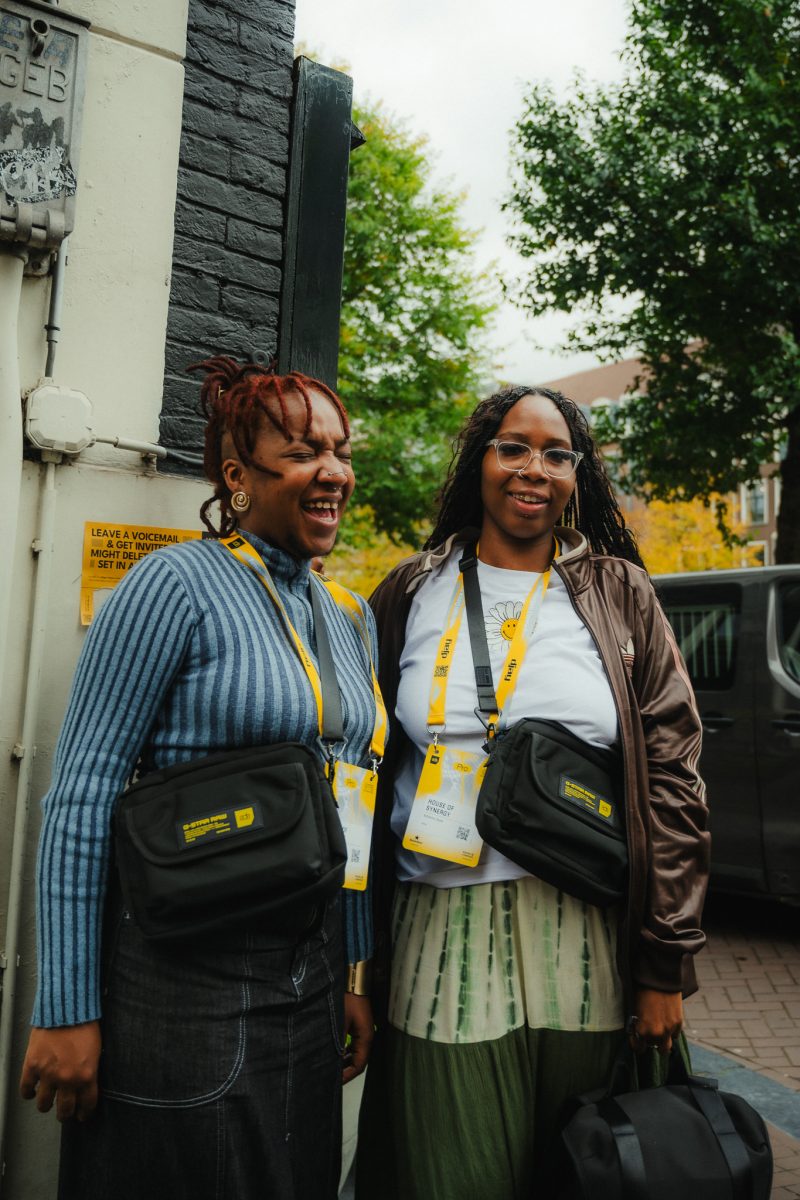
AFEM Presents: Diversifying Income Streams and Maximising Revenue in as a DJ in 2024
Speakers: Philipp (Pipo) Köhn (twelve x twelve), Verity Mayes (Artist / Beatport), Fiona Ham (MusicTeam®), Nicola Hedden (Peer Music)
With traditional income models increasingly disrupted, artists and DJs today face a crucial question: how can they leverage innovative funding platforms and capitalize on emerging income streams from recorded music, live performances, and collection societies? The year 2024 presents a wealth of tools and strategies, yet creating a sustainable living in music requires careful navigation of a complex financial landscape. Without adequate knowledge and a strong network, many performers find it challenging to monitor and maximize their revenue sources. Broadening income potential often depends on strong industry connections and a proactive approach to activating as many revenue streams as possible.
To make the most of these opportunities, artists need a clear understanding of whom they work with and the terms they agree to. Without solid support or preparation, reaching key agreements and achieving financial growth becomes an uphill battle. Effective royalty management, for instance, cannot be left to chance. Royalties are foundational to any artist’s income, and even this primary revenue source can become compromised without a strategic approach.
Industry-specific nuances, such as understanding the distinction between copyright registration and master ownership, play a pivotal role in income optimization. Metadata mismatches in performance royalties, especially across DSPs, can erode potential earnings if not accurately managed. Similarly, neighboring rights are often overlooked by DJs, who may not consider themselves instrumentalists. However, qualifying as a songwriter as well as a producer opens doors to additional revenue streams that should not be underestimated.
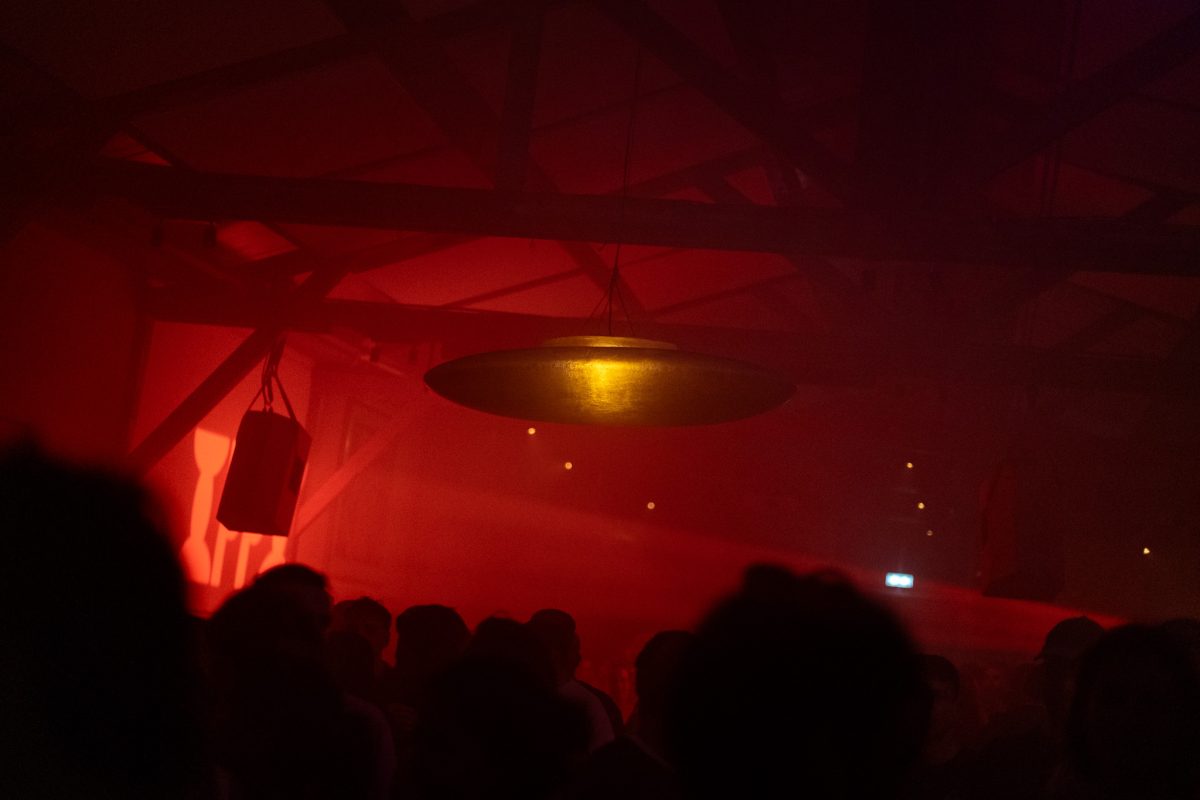
Australia House at ADE: Showcasing a Growing Powerhouse in Electronic Music
Sounds Australia made a strong impression at ADE with the debut of Australia House, a dedicated hub located in the heart of the city at Box Sociaal in Jordaan. This welcoming space became a meeting point for the Australian industry, allowing them to connect with international guests over complimentary Australian coffee and celebrate the talents emerging from their vibrant music scene. We had the chance to experience it firsthand.
Australia’s electronic music market, though young, is expanding rapidly, showing unique characteristics that set it apart on the global stage. The country’s radio industry continues to play a significant role in artist exposure and fan engagement, highlighting a distinctive approach compared to more digitally driven markets. Many Australian artists making waves internationally, such as Skin on Skin, have built impressive careers not through social media, but by the impact of their productions. While not as commercially visible as acts like Dom Dolla, Skin on Skin has forged a powerful underground following.
At the ADE panel “State of Play: How and Why Australian Dance Music is Excelling,” top Australian artists Cyril, Nina Las Vegas, and Upper90 offered exclusive insights into the factors propelling Australia to the forefront of global electronic music. Their Q&A session explored the diversity and dynamics of Australia’s music scene, highlighting why Australia now ranks among the top countries for electronic music streaming worldwide.
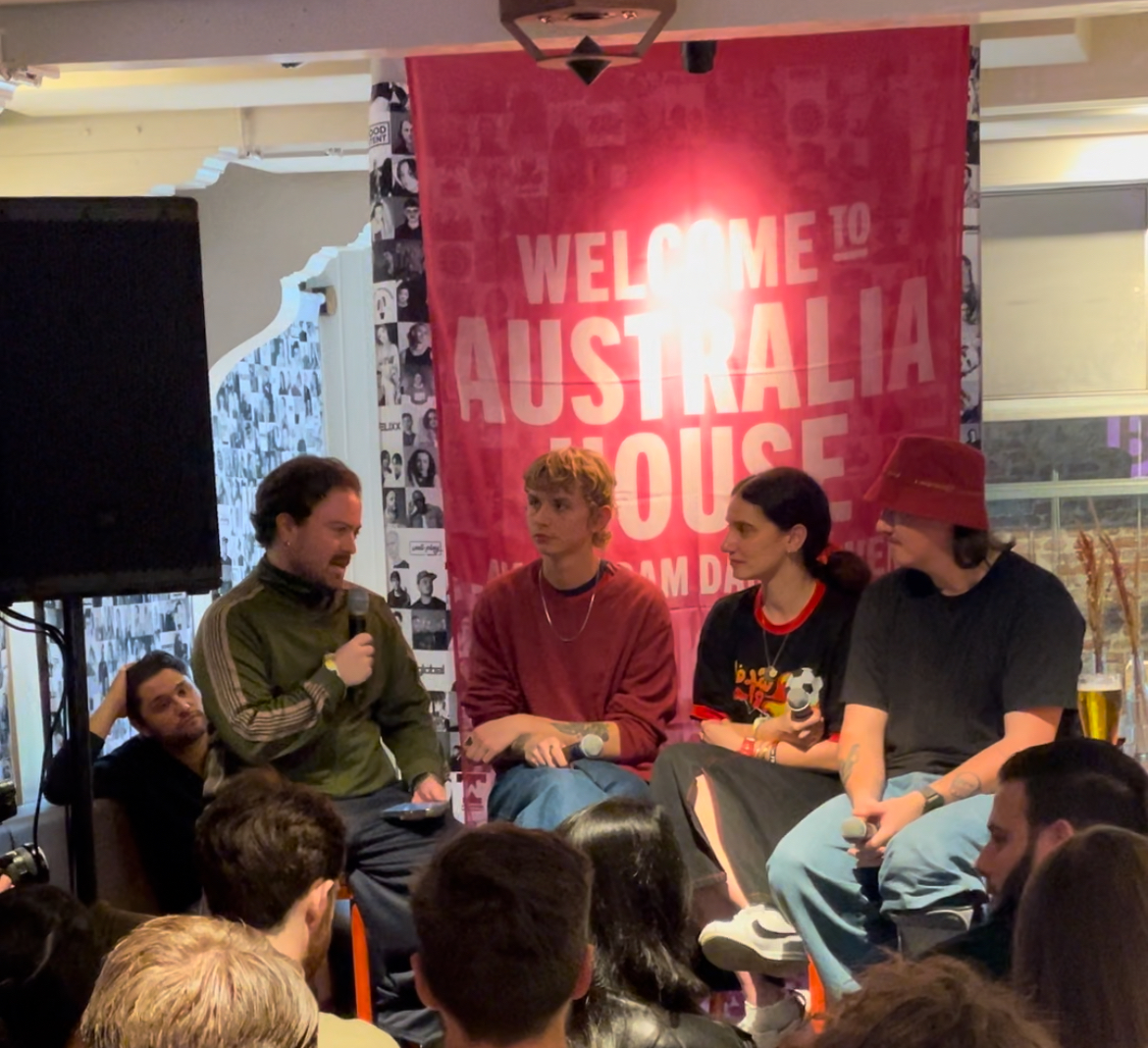
Fraud in Music Streaming
Speakers: Andrew Batey (Co-Founder, Beatdapp), Diederik d’Engelbronner (Senior Director of Operations, Downtown Music), Andy Daniell (Director of A&R, Defected)
An alarming estimate reveals that at least 10% of all globally streamed music is fraudulent. This massive issue impacts every player in the digital music supply chain, with up to $3 billion in annual streaming revenue essentially “going missing.” Over the years, the professionalism and scale of this fraud have escalated, with organized crime groups increasingly implicated in such activities. This panel delved into how these fraudsters operate, sharing several “creative” real-world cases, and examining the consequences for both artists and music labels. Andrew Batey from Beatdapp provided crucial insights into detecting and preventing streaming fraud.
Beyond bots and manipulation, unfavorable contractual terms also play a role in compromising an artist’s income. When contracts rely solely on royalty-based revenue, any percentage misalignment in the deal can drastically reduce an artist’s earnings. Such agreements are often structured to maximize control over the track, but artists are left vulnerable to revenue loss.
Legal intervention isn’t always necessary when data transparency and proactive monitoring can help sidestep potentially damaging situations. As this panel emphasized, understanding the mechanics of fraud and empowering artists with knowledge is essential to navigating the increasingly complex streaming landscape.
10 Years On: Celebrating the Legacy of ‘The Godfather of House’ Frankie Knuckles
Speakers: Tedd Patterson (DJ/Producer), Cinthie (DJ/Producer and Label Owner), Frederick Dunson (Founder, President & Executive Director, the Frankie Knuckles Foundation), The Blessed Madonna (DJ & Producer)
Moderator: Maria May (Senior Music Agent / Head of Electronic – International, Creative Artists Agency)
The Frankie Knuckles Foundation and Defected Records joined forces at ADE to honor the legacy of Frankie Knuckles, known worldwide as the “Godfather of House.” Marking ten years since his passing, this tribute celebrated Frankie’s role as a foundational figure in the creation of the global House sound. His influence, still deeply relevant, continues to inspire a new generation of producers and DJs, ensuring that his music and vision live on through the Frankie Knuckles Foundation.
This insightful conversation revealed many anecdotes from Frankie’s life, drawing fascinating parallels between the origins of House music and today’s scene. For anyone looking to understand the roots of dance music—and especially House—this session was an invaluable resource, blending historical context with personal stories from those who were part of Frankie’s journey. It’s a highly recommended listen for those wanting a deeper appreciation of the heritage that continues to shape the sound and soul of dance music.
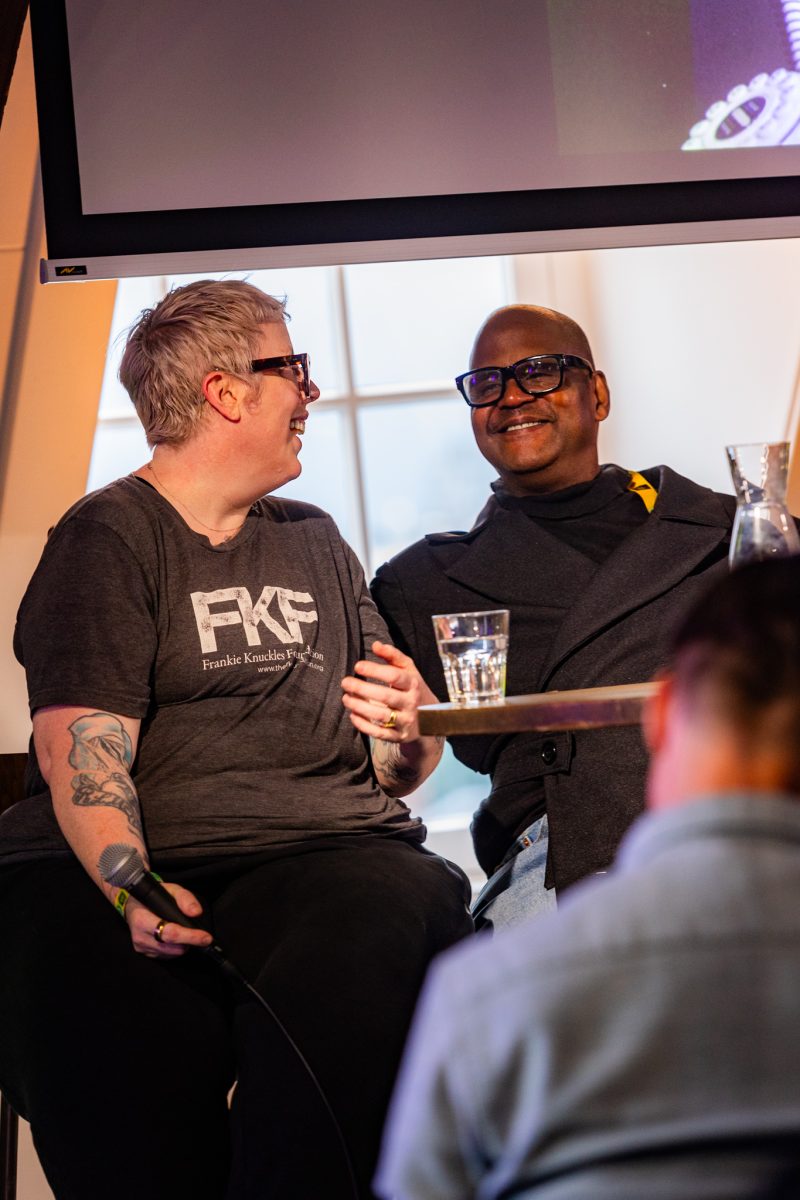
Game Changers: Phiona Okumu
Speaker: Phiona Okumu (Head of Music Sub-Saharan Africa, Spotify)
Moderator: Carmen Hogg
In an interactive live conversation, Phiona Okumu, Head of Music for Sub-Saharan Africa at Spotify, shared her insights on ten groundbreaking artists who have defined the past decade of African music. These artists, part of Okumu’s personal “Pantheon,” represent a powerful blend of traditional sounds and modern innovation, driving both the artistic and economic evolution of African music on the global stage. Okumu discussed how their influence has shaped the ongoing success of music from Africa and the African diaspora, highlighting the immense cultural impact and momentum behind these talents.
Even in the most popular tracks, traditional sounds remain central. For instance, Black Coffee’s Grammy-winning album “Singularity”, although categorized as electronic dance, maintained a distinctly African signature that resonated globally, breaking through genre barriers that typically constrain South African music. His success has opened doors for other genres within South Africa, proving their potential to reach beyond regional boundaries.
Okumu also highlighted artists like Cruel Santino from Nigeria, a true trailblazer whose work is celebrated for its unique fusion of urban, electronic, and Afrobeat elements. His album Man in the Jungle embodies this diversity, offering a richly textured sound that resonates with audiences across musical tastes. As both a musician and a visionary video director—collaborating with notable figures like Tyler, the Creator—Santino brings a distinctive visual style to his music, expanding his influence even further. His impact has inspired a wave of creativity throughout Nigeria and West Africa, sparking collaborations across music, fashion, and design.
This session provided an inspiring look at the urgent and vibrant music shaping the modern soundscape, making it an essential discussion for anyone interested in the artistic power and global reach of African music.
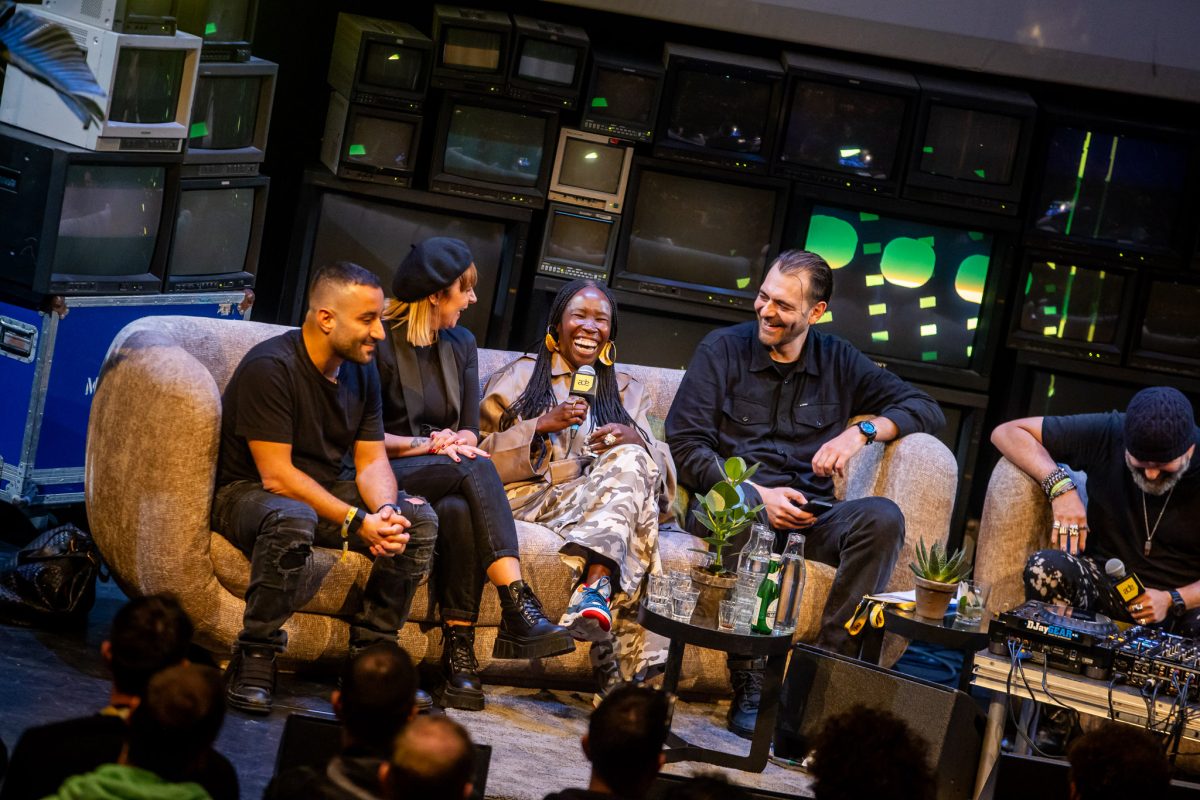
The Future of Radio
Speakers: Danny Howard (BBC Radio 1), Damien Platt (Palms Management), Dean Muhsin (Director, Dispersion PR), mrspring (Presenter & Producer of Specialist Music, RTE2fm), Rida Naser (SiriusXM), Jesper Skibsby (WARM)
Moderator: Dave Clarke (Artist)
For years, there have been predictions of radio’s decline, as newer, more customizable ways to consume music took center stage. Yet, against all odds, radio has not only survived but adapted and thrived. Far from being obsolete, radio remains a staple for those who enjoy a passive listening experience—and more importantly, for the passion and dedication of those behind the microphone. It’s this dedication, from seasoned hosts and new voices alike, that keeps radio alive as a vibrant part of the industry.
Ironically, the very technology once expected to render radio obsolete has given it new life, extending its reach and accessibility, with listener numbers growing steadily. But as radio navigates its role in today’s digital music landscape, questions arise: Can it still break new tracks in an age dominated by streaming algorithms? For electronic music especially, what does it take to produce compelling shows that engage a broad audience? And do historical brands like the BBC, Radio 538, FG in France, and Ireland’s Radio 2 still hold their legendary status, or has the focus shifted entirely to content and charismatic presenters?
In a rapidly evolving industry, radio’s resilience reminds us that its power lies not only in format but in the passion of its people. For as long as audiences connect with hosts who share their love for music, radio will remain an irreplaceable voice in the music world.
https://www.instagram.com/reel/DBPBkpes_mM/?utm_source=ig_web_copy_link&igsh=MzRlODBiNWFlZA==
The Future of Clubs and Venues
Speakers: Dimitri Hegemann (Founder, Tresor), Andrew Blackett (fabric), Duncan Stutterheim, Andrew Kelsey (Founder, Liaison), Raaf Verhoef (Programmer, Paradiso), Martje Kremers (Booking Agent, Primary Talent), Lévi Smulders (Promotor, Melkweg), Kenny Eshinlokun (Taboo), Ollie Seaman (Wasserman), Tommy Vaudecrane (Technopol), Bloody Mary (Artist / Owner, Dame-Music), Freddy Masters (Co-founder & COO, Keep Hush)
Moderators: Claire Wright (Founder, BUDDY), Lainie Copicotto (The Greenhouse)
The situation for nightclubs has become increasingly precarious, with recent reports from the UK’s Night Time Industries Association (NTIA) highlighting a troubling trend: since March 2020, the number of nightclubs has dropped by over 37%, putting the very existence of these venues at risk.
The new generation of nightlife-goers is reshaping the landscape, often opting for grand, high-profile events over local club nights. Today, a night out is often reserved for festivals like Primavera Sound, Tomorrowland, or major indoor shows such as The Warehouse Project or ABBA’s immersive experience at the O2 Arena.This shift leaves smaller, local venues struggling to fill their floors, creating challenges for resident DJs and emerging artists who rely on these spaces to build their careers.
For club owners and promoters, the game is getting harder, as they now face the dual challenge of drawing crowds and navigating a complex post-pandemic economy. Organizers are beginning to seek tangible support to prevent the disappearance of these spaces, which would mean a loss of critical platforms for nurturing talent and sustaining community culture. If this trend continues, will future generations become accustomed only to large, sanitized events and miss out on the unique, intimate atmosphere of neighborhood clubs?
The pressing question is: How can these smaller venues regain their place in the music ecosystem? With meaningful support and creative adaptation, grassroots clubs could continue to play a vital role in providing a launchpad for new talent and mid-sized acts. Without intervention, however, the club scene may be at risk of losing its soul—along with the opportunities it creates for the next generation of artists.
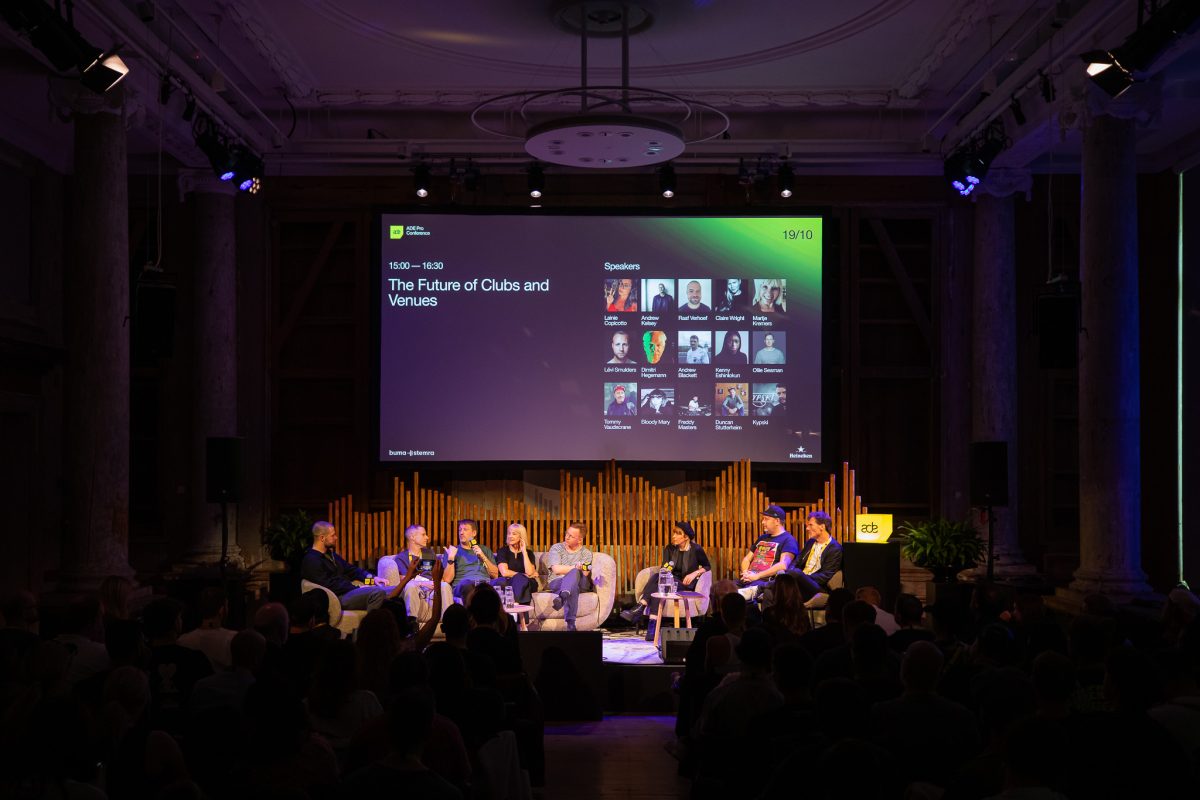
Demolition XXVII
Panel: Bloody Mary (Artist / Owner, Dame-Music), Cinthie (Artist), Joseph Capriati (DJ,Producer), Phiona Okumu (Spotify), Sinca (DJ Producer)
Host: Dave Clarke (Artist)
Demolition returned for its 27th edition, once again inviting producers to showcase their latest creations and gain invaluable feedback from a panel of respected electronic music experts. Hosted by Dave Clarke, this interactive session allowed emerging talents to have their tracks critiqued live on stage by A&Rs, seasoned artists, and industry veterans, each bringing a wealth of knowledge across electronic genres. Held at the ADE Lab grounds, Demolition offered a unique opportunity for producers to learn, refine their sound, and connect directly with influential figures in the industry.
This year, from a pool of standout tracks, one winner and two runners-up were awarded high-tech prizes that could reshape their creative toolkit. Generously provided by top-tier brands such as Torso Electronics, Native Instruments, Ableton, Novation, ADAM Audio, AlphaTheta, Universal Audio, and Djoid, these prizes represented a significant boost for any aspiring artist. Congratulations were in order not only for the winners but for all participants who took part in this inspiring experience—Demolition continued to be a powerful platform for growth and recognition in electronic music.
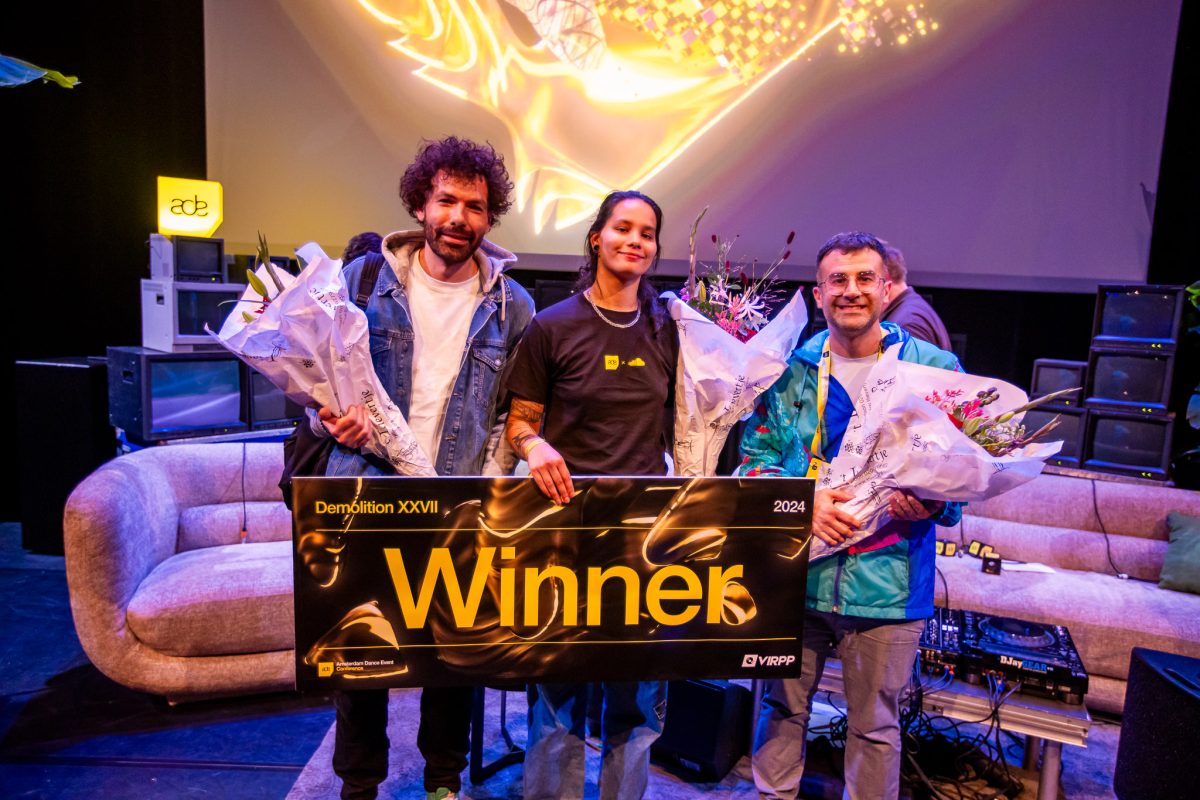
Events & Mixers
We had the opportunity to immerse ourselves in a variety of events and showcases that delivered standout performances throughout ADE.
Get a Glimpse of Our Experience!
From an unforgettable tram ride with Boris Brejcha and his label F*ckin Serious in a special takeover celebrating the launch of a new music discovery app, to the Greek festival PRIMER’s event with FAST BOY, the energy was palpable. At the AlphaTheta networking event, we marveled at 30 years of CDJ history, followed by a relaxed drink with friends from Believe, Tunecore, and b:electronic during their takeover at the Andaz Hotel.
We also attended The Future of Dance awards by 1001 Tracklists, honoring the Top 101 Producers, and made our way to Andrea Oliva’s renowned ANTS party hosted by The Night League, where he closed the show with a powerful b2b set alongside Mau P. Returning to ADE after last year’s success, My Other Side of the Moon, one of the world’s top 30 Afro House labels, hosted a phenomenal showcase. Matroda’s Matroda & Friends event also marked his proud return to Amsterdam, featuring an all-night house music celebration.
The iconic Toolroom Records party brought together fans with Mousse T at Fool’s Paradise, while Defected Records celebrated its 25th anniversary with two rooms dedicated to another triumphant chapter for house music. We also enjoyed the ethnic vibes from Triangle and Sique Records and the drum ‘n’ bass excitement of Hospitality. Finally, we were fortunate to visit the Dolby Athmos Theatre, set up especially for ADE, where we had the chance to listen to Kraftwerk’s legendary album Autobahn on its 15th anniversary—a truly memorable experience among countless exceptional offerings.
As we wrap up this year’s Amsterdam Dance Event, we want to extend our deepest thanks to ADE Press Team and everyone who welcomed us, invited us and shared their passion and knowledge.
From new connections to familiar faces, each conversation and encounter enriched our understanding of this vibrant industry and reminded us of the powerful community behind the music. With so many creative minds gathered in one place, ADE served as both a celebration and a catalyst, sparking ideas and collaborations that will undoubtedly shape the future.
Looking ahead, we part with the awareness that the music industry is as fast-moving and dynamic as ever. In this era of constant change, where innovation and opportunity can appear at any moment, there’s an electric sense that the next big breakthrough could be just around the corner. Until the next great conference, we leave energized and inspired, ready to embrace the exciting and unpredictable journey ahead.
See you next year for the 2025 edition from October 22 to October 26!

Rudy (32) currently based in Bergamo, here since 2019.
https://www.linkedin.com/in/rudy-cassago-522452179/
